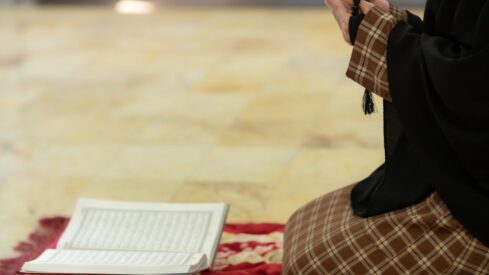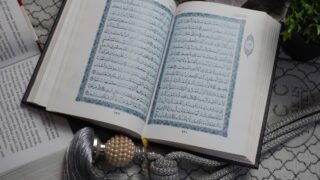Hope in Allah is one of the most essential qualities a believer must hold onto throughout their journey in life. As they seek Allah’s pleasure and guidance, they must nurture hope in Allah’s mercy and trust in His plan. No matter how dark or challenging life may seem, trust in Allahprovides light, as Allah always provides a way out of difficulties. This hope is a testament to one’s faith and is essential in overcoming the trials of life.
Hope Stemming from Faith
Hope in Allah springs directly from faith. There can be no true hope without firm belief. Hope that lasts and deeply influences the soul must be rooted in unwavering faith. It is this faith in Allah that helps a person overcome life’s difficulties, lifting their spirit and connecting them with their Creator.
Hope in Allah is rooted in the belief that He is the all-powerful Creator who knows the state of His servants. Nothing in creation escapes His knowledge—whether the movement of an ant or the faintest sound. Allah’s mercy encompasses all things, and He is more merciful to His servants than their own mothers. He constantly extends His hand of mercy, waiting for His servants to return to Him in repentance, by night or by day. His treasures never diminish, His door of mercy is always open, and His assistance is always available.
This unwavering belief in Allah’s mercy and compassion forms the foundation of hope in Allah. It reflects the core of true faith and the deep connection between the servant and their Creator. Because hope is a natural consequence of faith, Allah’s help comes in proportion to one’s level of hope and trust in Him. The more hopeful and faithful one is, the greater the assistance from Allah.
The Prophet Muhammad (peace be upon him) shared this in a hadith:
“Allah the Almighty says: ‘I am as My servant expects Me to be, and I am with him when he remembers Me. If he remembers Me within himself, I will remember him within Myself. If he mentions Me in a gathering, I will mention him in a better gathering. If he comes closer to Me by a hand’s length, I come closer to him by an arm’s length; if he comes toward Me by an arm’s length, I come toward him by a distance greater than that. And if he comes to Me walking, I come to him running.’” (Agreed upon).
Hope Gives Life to Life
Life is filled with obstacles and challenges—this is its nature. Expecting life to be entirely free of hardships is unrealistic. As the poet says:
Life is filled with adversity, while you seek it pure of troubles.
Expecting the impossible is like seeking fire from water.
If you build hope on the edge of impossibility, you only build on a crumbling foundation.
The Qur’an reminds us of this reality:
“Indeed, We created man in hardship” (Al-Balad: 4), and
“[He] who created death and life to test you [as to] which of you is best in deed, and He is the Exalted in Might, the Forgiving” (Al-Mulk: 2).
Since life is inherently filled with trials, we cannot change its nature. However, we can change how we understand and approach it. A major part of this is adopting hope rooted in faith in Allah and trusting in His mercy and wisdom:
“And Allah is the Possessor of Great Bounty” (Al-Imran: 174),
“Our Lord, You have encompassed all things in mercy and knowledge, so forgive those who have repented and followed Your way” (Ghafir: 7).
Hope breathes life into our existence. With hope, we become aware of our potential, trust in the blessings that Allah has granted us, and look for the light that dawns even amid the darkest nights. Life without hope, however, is like a body without a soul.
Hope Strengthened by Action
While hope in Allah is essential, hope alone is not enough. Action must accompany hope for it to be complete. If we rely on hope without action, we misunderstand the very essence of hope. This is the difference between tawakkul (trusting in Allah) and tawakul (passivity). The Prophet Muhammad (peace and blessings be upon him) emphasized this balance: “Tie your camel and trust in Allah” (Sahih Ibn Hibban).
In another hadith, the Prophet said:
“If the Hour (the Day of Judgment) comes and in the hand of one of you is a seedling, if he can plant it before the Hour comes, let him do so” (Sahih Al-Albani).
A Muslim must remain engaged in work and contribution until their last moment of life, just as they must continue to hope and trust in Allah’s mercy until the very end. Al-Hasan Al-Basri wisely said:
“Faith is not through wishful thinking, but it is what settles in the heart and is proven by actions. Some people left this world without having done any good deeds, yet they said: ‘We have good hope in Allah!’ They lied, for had they truly had good hope in Allah, they would have done good deeds.”
The Reward in the Hereafter
Hope in Allah and having good expectations of Him does not necessarily mean that a person will achieve all their desires in this world. This world is a place of tests and trials, not of rewards and compensation.
The true benefit of hope in Allah lies in its reflection of a believer’s sincerity in faith, reliance, and confidence in their Creator. A person may work tirelessly without seeing the outcome they hoped for. However, this does not mean giving up on action or hope.
Instead, it means doing everything within one’s capacity and then leaving the results to Allah, fully trusting in His wisdom and mercy. If one achieves their hope in this life, it is a great blessing. If not, then the Hereafter holds the ultimate compensation—eternal rewards and everlasting joy.
By: Al-Sunusi Muhammad Al-Sunusi


















